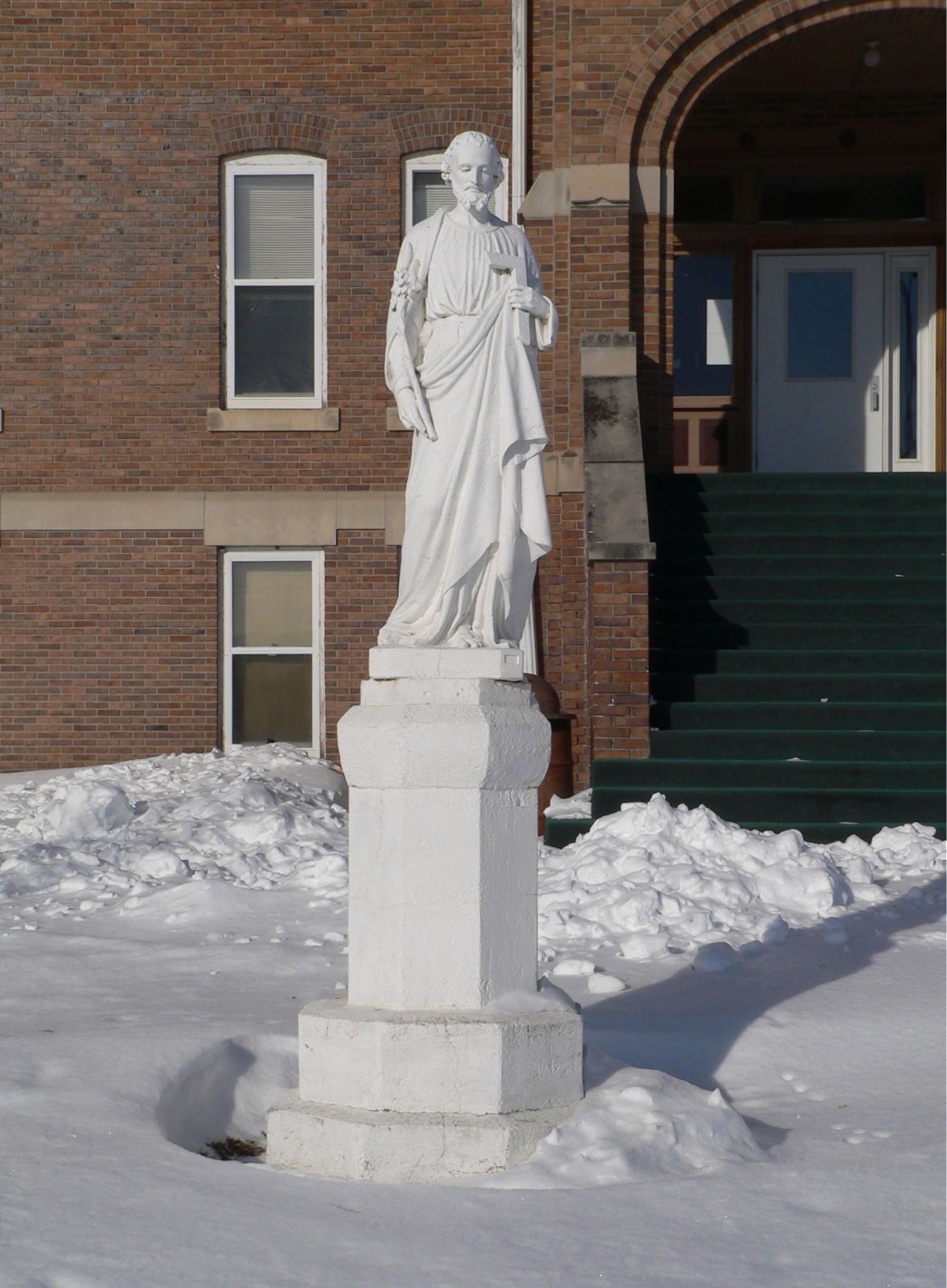Short Lessons from St. Joseph the Worker
Meditation
One charming story about St. Joseph tells of the building of a miraculous staircase in the chapel of Loretto, New Mexico. In 1852, the chapel was built and placed under the care of the sisters of Loretto. Unfortunately, there was a problem: there was no ladder allowing the sisters to reach the choir from the nave. With no apparent solution at hand, the sisters were advised to pull down the choir. They refused, deciding instead to pray to St. Joseph for a solution. Soon, a man showed up and offered to build a staircase. He required total privacy for his work. With only a few simple tools, built a beautiful spiral staircase with no central pillar. Then he disappeared completely, without asking for payment. Since then, the sisters have credited St. Joseph with the building of the staircase.

Whatever the origins of the staircase, the story is a beautiful one, well worth reflecting on on this feast of St. Joseph the Worker. The feast day was established in 1955 by Pope Pius XII to remind Christians of the virtue and value of manual labor, and to remind them that the dignity of work is a uniquely Christian concept. Let us take a few lessons from St. Joseph, son of David, foster-father of Christ, patron of workers.
1) Manual labor is of great worth; such laborers share in the dignity of St. Joseph and Christ, who worked with their hands.
Against the error that causes us to treat manual work and its laborers with contempt or injustice, St. Joseph is our guard. Despite being of the line of kings, and despite being honored with the duty of providing for Christ and Our Lady, he did not disdain to work with his hands. And Christ, He who came to redeem men, also redeemed work. Labor may have been a consequence of the fall–In the sweat of thy face shalt thou eat bread till thou return to the earth (Gen. 3:19)–but it was redeemed not only by the Blood of God shed on the cross, but by the sweat of God as He earned His living in a small shop in Nazareth.
2) We–especially fathers and husbands–should learn to live by the labor of our hands as much as we can.
“Every father,” Dale Ahlquist said, “is Joseph: a craftsman, a protector, a provider.” Let those who earn their living work in the spirit of St. Joseph and the God who was a carpenter, doing high quality work, and seeing that work as their road to redemption. St. Paul’s vocation was to be an Apostle; yet he labored still as a tent-maker. In order to live by the labor of their hands, many of those who are not manual laborers by profession should still learn to do manual labor, learning skills, and working with their own hands. There are a host of skills men can learn and pass on: carpentry, woodworking, pottery, brewing, farming, painting, electric repair, masonry and auto work. All should understand and, if possible, experience the dignity in such work.
3) In our work, let us always strive to live in the presence of our God.
Fr. Langalerie tells us to ponder “how profound and tranquil must have been the life of St. Joseph, who… had his heart and mind centered on God.” Whatever our duties, we must keep sight on the One Who brought us into existence, for all earthly labors are nothing beside this joy. St. Joseph was with God in both heart and body; we too can keep our hearts with our Lord. We can practice prayer and recollection often, living in God as we go about our daily duties. We might say short ejaculatory prayers, with fervor, during all our work; practice any form of mental prayer, even if it may only be a moment in between tasks to bring oneself back to God; read from a pious book or the Scriptures; and renew our resolutions for each day to grow in holiness.
But we entreat you, brethren, that you abound more: And that you use your endeavor to be quiet, and that you do your own business, and work with your own hands, as we commanded you: and that you walk honestly towards them that are without; and that you want nothing of any man's. (1 Thess 4:10-11)
St. Joseph the Worker, pray for us!



